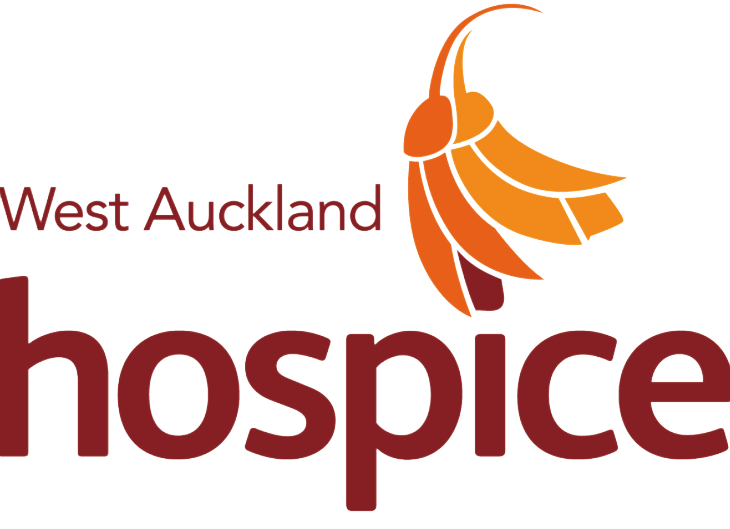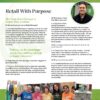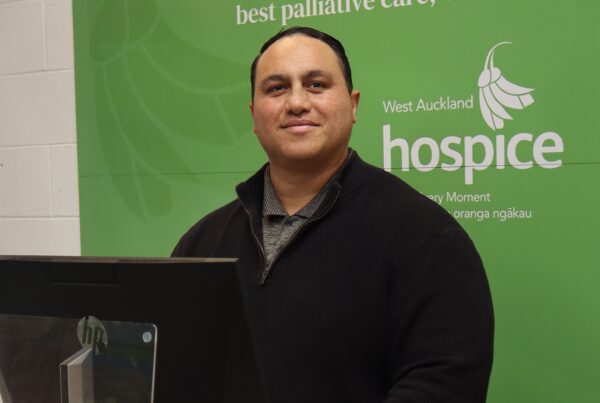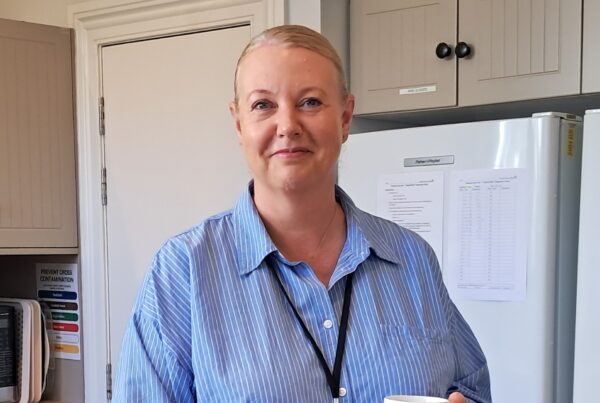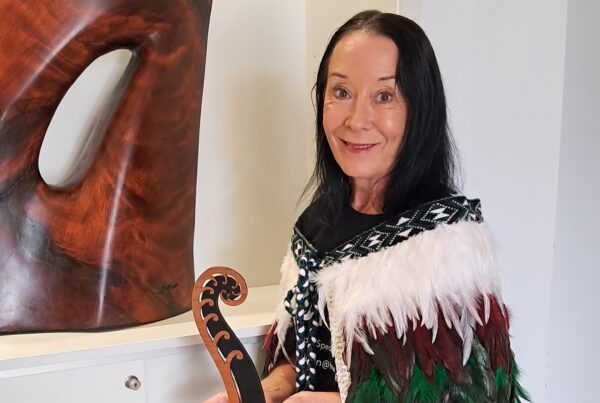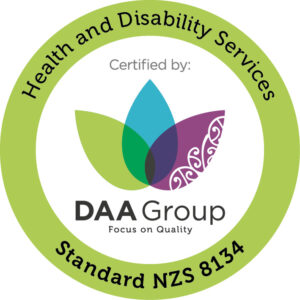Wayne is a Patient and Family Volunteer (PFV) at Hospice West Auckland. In his role of providing companionship, he spends time with a patient every couple of weeks – an experience he describes as ‘amazing.’ “I’ve found it a privilege to be honest,” he says. “I’m so appreciative of the time I spend with patients. I’ve had the privilege of spending time – I don’t feel like I’ve been the one giving, because I’ve received so much.”
Wayne says he’s always been interested in the grief process, drawn to it through his personal experiences. “Part of the reason why grief and hospice work appeals to me is because it’s part of my own healing journey, I think that’s why it resonates with me,” he says. As a Westie, reaching out to volunteer for Hospice West Auckland felt like a natural step. “I wanted to work with patients and families and get comfortable around those really difficult emotions,” he explains, “being in that space and hopefully offering something too.”
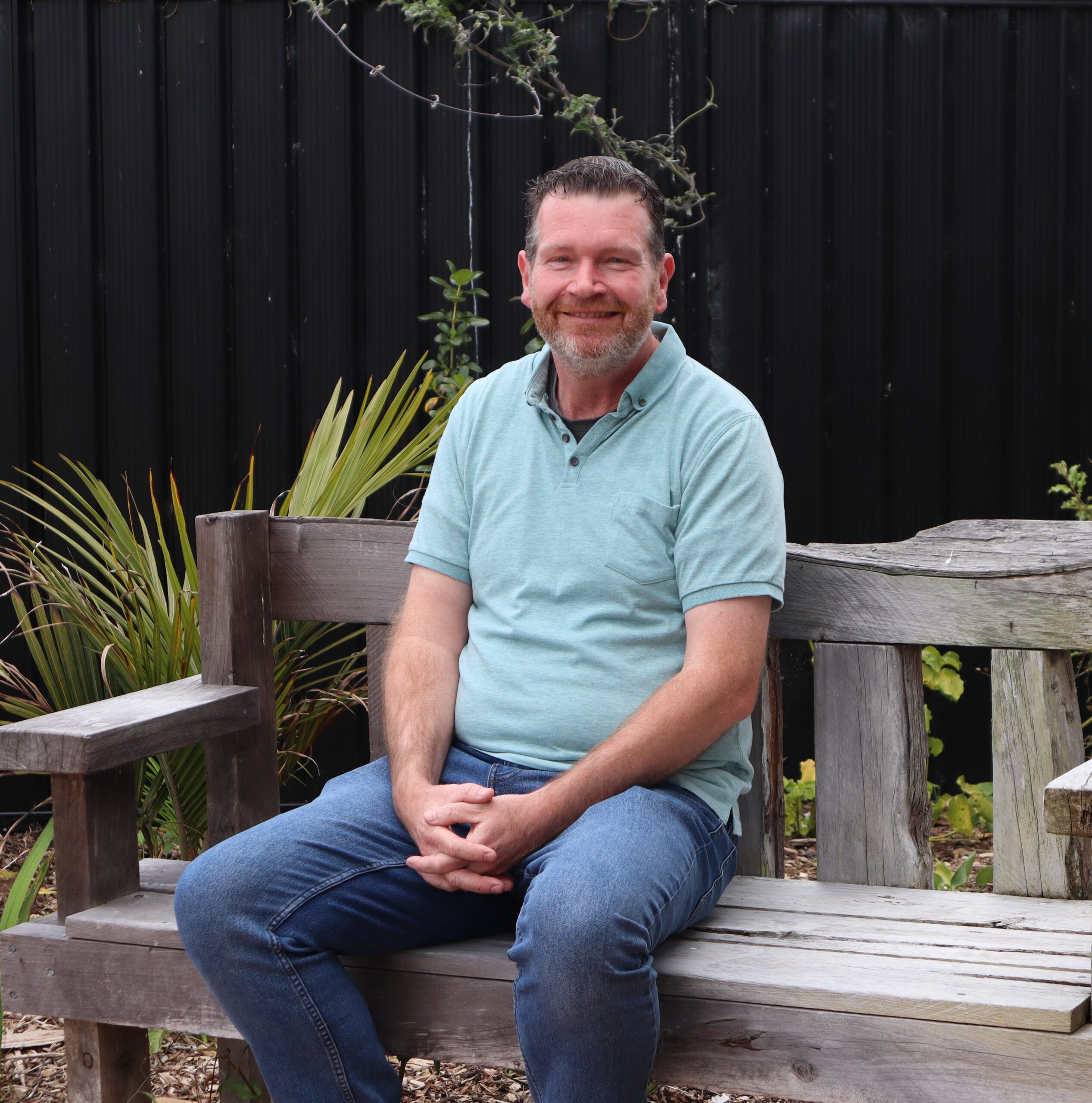
Wayne says he was surprised at how ‘warm and inviting’ Hospice House was when he visited for the first time. “The vibe was really nice, everyone was so lovely and I just thought that this is definitely the place to do some kind of volunteer work,” he says. “It is surprisingly joyful and full of life.”
Hospice West Auckland provides comprehensive training and support for PFVs, not just when they first join the team but on an ongoing basis. Orientation, learning workshops, self-care techniques and regular group supervision meetings all provide invaluable tools and guidance for PFV roles. “There is so much support at Hospice to guide you as a PFV, you’re not just thrown into it,” agrees Wayne. “I’ve never once felt alone in the whole process. The Coordinator, who has clinical and social work background, holds the space for the volunteers because they provide that reassurance and guidance whenever it’s needed. As a volunteer you can trust that that model is there to support you.”
When first matched with a patient, the PFV is given a brief that includes details of the person’s condition and some background information on their interests and living situation. While the Coordinator uses their experience and judgement to make what she believes will be a good match, Wayne emphasizes that it is normal to feel uncomfortable early on, before a connection is made. “You are drawn together in this experience, which is such an intimate experience, so there is a process and it can be a little bit awkward to begin with,” he says. “So that’s normal to feel hesitation around how to work with someone like that, but then you develop that rapport and bond.”
Hospice offers as much support as possible to ensure the companionship is a comfortable match, and Wayne agrees that the initial awkwardness doesn’t last for long. With his current companion, the rapport and connection were quick to grow. “We’ve spent lots of time having a coffee or looking out at the ocean. We started off talking about his life experiences and family, and our connection has grown from there. I think he’s found it useful to reflect on some of those really good times in his life. Getting to see where he’s come from was a great way to build rapport. And he’s been quite open about his circumstances, so we’ve had some really meaningful talks too. We’ve talked about the impact he’s had on people and the kind of loss that they will feel, and his thoughts around that.”
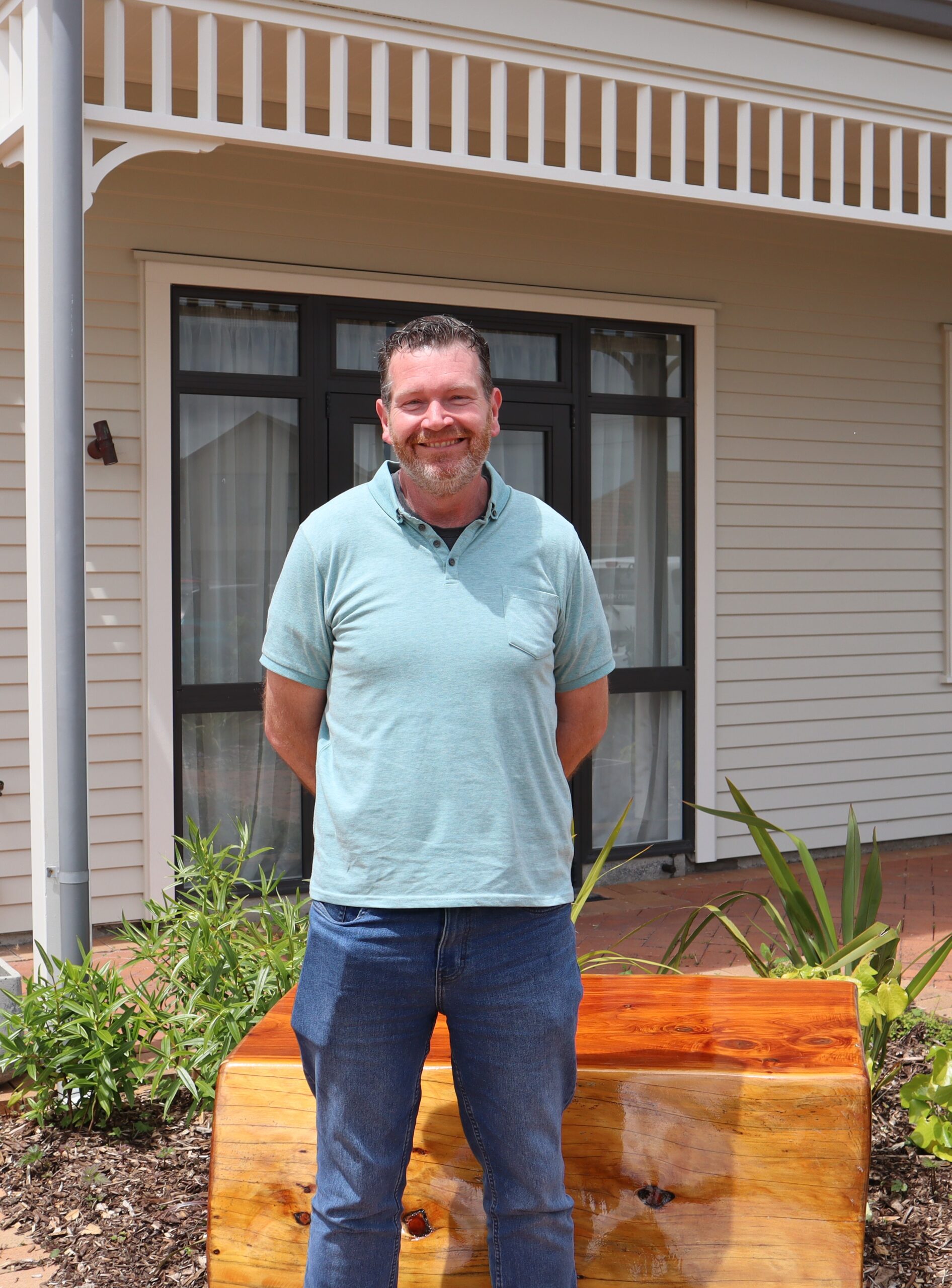
Although he has been a PFV for over a year, Wayne finds that the regular group supervision meetings provide an extra layer of vital support. “I’ve gotten so much out of those supervision meetings,” he explains. “There’s a selection of different PFVs and they’re always the perfect people. It’s so nice being among people who can relate to what you’re doing. And the Coordinator is so experienced at holding that space and making it safe for people.”
From time-to-time Wayne has also spent time visiting in the patient’s home, providing the opportunity to meet with and get to know their loved ones – which he says is quite a different experience. “It’s nice to work with the family too and see how everyone interacts and those different dynamics.” Part of the guidance that Hospice provides PFVs is how to navigate being in someone’s home and being helpful without feeling intrusive or a burden. Sharing experiences at group supervision meetings is encouraged, allowing everyone to learn from each unique situation. “There’s as much support as you want,” explains Wayne. “Occasionally I’ve phoned up the Coordinator for advice following a visit, and she’s provided that ‘steadying hand,’ reassuring me that it was all ok and that I was supported.”
For anyone interested in becoming a PFV, Wayne’s advice is to ‘back yourself.’ “I totally recommend it – the patient really appreciates having you there,” he says. “You’re independent of their day-to-day situation, so often they feel like they can let their boundaries down. You’re there to offer them something that maybe they don’t want to burden their families with. And you go where they want to go, in terms of how they want to spend their time with you and what they’d like to talk about.”
Wayne says that when he tells people he volunteers for Hospice, the first reaction is always ‘oh, that must be really hard!’ Self-care techniques, regular debriefs with the Hospice team and PFV group supervision are all essential to equip PFVs with the ability to cope with difficult situations. “But actually, it’s more like a privilege because you’re in a sacred space to be with people at that stage of their journey,” he says. “And if Hospice can ease their physical pain, or provide emotional or spiritual support, or companionship, then that’s helping and we shouldn’t be afraid of that space. It’s wonderful too when you’re looking for a pool of volunteers because there are so many ways that you can help. If you feel drawn to volunteering at Hospice, there will be a role for you.”
